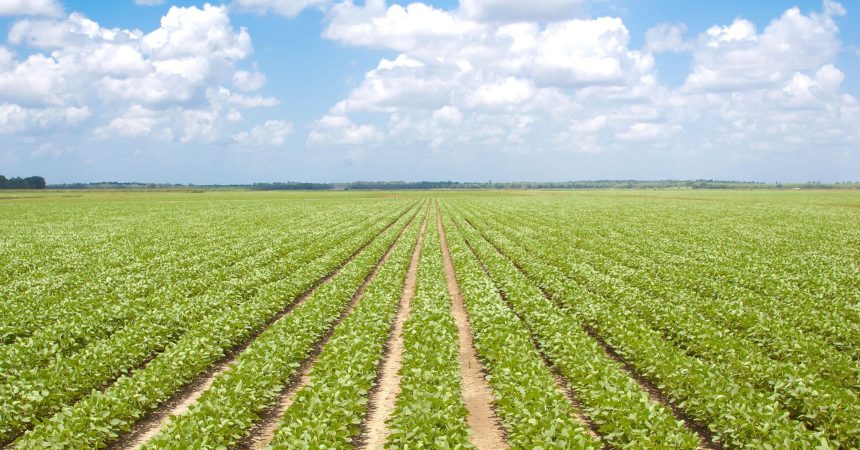Republican President Donald Trump’s tariffs on Mexico and Canada and the consequences that would have come with them have been averted for the time being, but that does not mean the looming prospect of a global trade war with the U.S. at the center has not invoked fear in Mississippi’s largest industry.
Agriculture produces roughly $9 billion annually in Mississippi, making for around a fifth of the state’s total economy. On a national scale, the impact farmers have hovers in the trillions with many rural areas not only in Mississippi but also in other states flooded with worries about how current and future tariffs may affect the industry.

Mike McCormick is the longtime president of the Mississippi Farm Bureau Federation, a general farm organization that often serves as the voice between the agriculture sector and Washington. He said the industry is the first in line to suffer from the brunt of any tense trade negotiations happening between the U.S. and its critical trading partners.
“Farmers are going to be the tip of the sphere on this. They’re the ones who are going to feel the pain first and probably have to deal with it the longest when we get in trade disputes,” McCormick said.
Mississippi’s three largest agricultural trade partners are Mexico, Canada, and China, which happen to be the three countries Trump targeted with his Saturday pen stroke to impose tariffs. Before Tuesday’s start date, in which the import taxes were set to go into effect, both Mexico and Canada agreed to appease the American president over border security in order for conversations to continue without immediate repercussions for businesses and consumers.
To initiate a 30-day pause on the tariffs, after first asserting that retaliatory tariffs were to come, Mexican President Claudia Sheinbaum agreed to deploy 10,000 members of its national guard to the southern border to address drug trafficking. Canadian Prime Minister Justin Trudeau promised to spend $1.3 billion on a plan to further secure the northern border as Trump’s main concerns at both are illegal immigration and fentanyl trafficking.
“Luckily for us, I think the president did put the pressure on the right place with Canada and Mexico making some concessions as they work through the process,” McCormick said, noting his organization is watching the situation closely in the case of tariffs resuming.
American farmers are heavily reliant on Canada for potash, a group of minerals and chemicals used for fertilizer, with the U.S. importing about 80% of its potash from above the northern border. Farmers in both countries count on a joint economic effort to manufacture various machine parts.
“A lot of the big tractor and big combine engines and other big parts may cross the Canadian border multiple times during the manufacturing process,” McCormick explained. “Each time that it crosses, it will be subject to a tariff. So, we could have multiple times that we could be hit with that.”
If the agreement to pause tariffs had not been reached, Trump’s plan would have charged Mexico and Canada a 25% tariff on all products coming into the U.S. Mexico and Canada were planning to impose similar taxes of their own for products coming into their countries.
As for China, no agreement to pause the tariffs has been reached as Trump and Chinese President Xi Jinping have yet to speak. In the meantime, a 10% tariff was put in place on all imports from China. The Asian country retaliated with tariffs on select American imports, including more than 50 U.S. farm and gardening products.
The trade dispute with China is nothing new for Trump. Chinese goods had already been subjected to previous tariffs, beginning during the Republican’s first term between 2017 and 2021. Democratic President Joe Biden then kept those tariffs in place and even increased them at one point.
“I think [Trump] got his point across to Mexico and Canada,” McCormick said. “Now, China will be a whole different story.”
While McCormick remains vigilant when it comes to tariffs, he believes a more pressing issue may be stateside. According to him, a crisis has ensued with farmers not only being at the “mercy of the market” but lenders increasingly turning down farmers or tightening lending criteria.
The way the process works is a farmer will borrow money short-term to purchase everything needed before planting. Upon harvesting and selling the product, that loan is expected to be paid back with both sides expecting a profit. Recent years have resulted in farm lending seeing consistent drops due to profitability concerns.
“Right now is the time that farmers are going into their local lenders to see what amount of money they’re going to be able to secure to grow crops this year, and it’s not a positive sign,” McCormick said. “They’ve had two years of really bad economic returns for their farms, and unfortunately when looking at the commodity markets and futures, this year doesn’t look like a rosy picture.”
Both Lt. Gov. Delbert Hosemann and U.S. Sen. Cindy Hyde-Smith have promised to do what they can on their respective levels of government to help the industry.
Hyde-Smith announced Wednesday that she and the Agriculture Committee have started drafting a new Farm Bill which could strengthen the commodity safety net and help farmers get more loans by increasing the limits on direct loans and loan guarantees. The bill would need to be approved by both chambers and signed by Trump.
“Input costs are through the roof while crop prices are lower than they were 15 years ago. The federal farm safety net is not providing adequate support to keep our farmers and ranchers afloat,” Hyde-Smith said. “Because of this, producers across the country are going out of business. In short, U.S. agriculture is just in trouble.”







